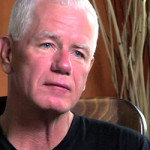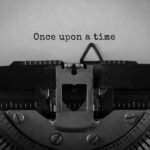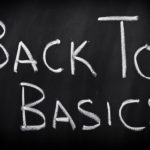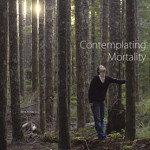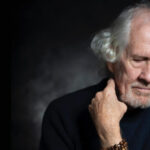
This past Monday was our “official” MLK holiday and the expected media attention was evident.
King’s words echo wisdom we too often ignore.
My friend, Toni Bernard (who lives with a chronic health condition), has cherished a certain MLK passage and included it in her 2015 Psychology Today article about how King’s words resonated while she was doing a typically uninspiring chore: laundry.
A timeless good read, folks!
If you are in CA, hope you’re staying dry. If elsewhere, keep your boots handy. Weather travels east!
Vicki P.
A Holiday Lesson on Interdependence from Martin Luther King
by Toni Bernard
(originally published on Psychology Today/12.21.15)
Mindful attention to the moment can change your perspective on life.
A few weeks ago, I found myself coming unglued. I’d planned a quiet morning and afternoon so I could rest as much as possible for a book event that was scheduled for the next day. I decided that I’d limit myself to doing a load of laundry.
Unfortunately, things were not turning out as I’d planned, and it was only mid-morning. My so-called “quiet” day began with my dog destroying a box in which I’d wrapped a gift for the person who’d arranged the book event. It continued with an ill-fated trip outside to retrieve the newspaper. Instead of quickly retreating back inside, I wound up standing for a half hour in front of the house of a neighbor who is chronically ill, helping her come to an agreement with a contractor for how much to pay him for some work he’d arrived so late to perform that her son had already done a portion of the job (it’s a long story).
After that adventure, I went straight to my bedroom and collapsed on the bed only to realize that the load of laundry would have finished the drying cycle and if I didn’t fold the clothes right now, they’d turn into a wrinkled mess. So I left the bedroom, retrieved the laundry from the dryer, and threw it on the bed in a fit of crankiness. There were half a dozen long sleeved T-shirts and three pairs of sweat pants, all of which had to be turned right-side out before I could fold them and put them away. (As a young wife, I’d been told by my mother-in-law, “if you wash and dry your clothes inside-out, they’ll last longer,” and so I’d dutifully been doing this ever since.)
As I hurriedly got to work on the first shirt, I could feel my crankiness quotient rising. Thankfully, as I began turning the second shirt right-side out, I said to myself: “Stop. Take three in- and out-breaths and, with gentle kindness, bring your attention to the task at hand.” And so I did.
The first thing that happened was that I immediately slowed down. That felt good. Then I noticed the beautiful burgundy color of the T-shirt in my hands. This was followed by the thought “I wonder where it was made.” I looked at the label and it said: “Made in Cambodia.” That got me thinking about how someone in Cambodia (probably a woman like me) had held this very shirt in her hands as she sewed it together. She was no doubt paid very little for this work—perhaps only enough to put rice on the table for her children.
Then I thought about her life and my life. Both of us had touched this shirt—she to feed her family and me to feel put out because I had to turn it right-side out. “Wow,” I thought. This led me to finish the task with care and with appreciation and compassion for all the people who’d worked on the shirt.
Then I picked up the first pair of sweat pants. “Made in Bangladesh” it said on the label. I remembered reading about the poor working conditions and low wages in the garment industry in Bangladesh, and how cheap labor was leading the U.S. and European nations to have goods made there rather than in other countries.
I thought about the collapse of the garment factory in Dhaka, Bangladesh in 2013 that killed more than a thousand people due to the criminal negligence of the building’s owners who knew it was unsafe. I wondered if these sweat pants had been made at that factory and if they had passed through the hands of any of those who’d been killed or injured. Again, with appreciation and compassion for those who made these pants, I carefully turned each pair right-side out and folded it.
By the time I finished folding my clothes, my mood had changed. Instead of feeling cranky and put upon, I was appreciative for the easy life I have despite being chronically ill. I was also appreciative for all the people in the world who have made it possible for me to live this easy life. And I was filled with compassion for those who struggle to provide food and shelter for themselves and their families.
After I put the clothes in a drawer, I went to my computer to find a quotation from Dr. Martin Luther King, Jr. that I always read to my law students on his birthday. I’ll close this piece with his words. They’re from his 1967 Christmas Sermon on Peace:
All life is interrelated. We are all caught in an inescapable network of mutuality, tied into a single garment of destiny. Whatever affects one directly, affects all indirectly. We are made to live together because of the interrelated structure of reality. Did you ever stop to think that you can’t leave for your job in the morning without being dependent on most of the world? You get up in the morning and go to the bathroom and reach over for the sponge, and that’s handed to you by a Pacific Islander. You reach for a bar of soap, and that’s given to you at the hands of a Frenchman. And then you go into the kitchen to drink your coffee for the morning, and that’s poured into your cup by a South American. And maybe you want tea: that’s poured into your cup by someone from China. Or maybe you’re desirous of having cocoa for breakfast, and that’s poured into your cup by a West African. And then you reach over for your toast, and that’s given to you at the hands of an English-speaking farmer, not to mention the baker. And before you finish eating breakfast in the morning, you’ve depended on more than half the world. This is the way our universe is structured; this is its interrelated quality. We aren’t going to have peace on Earth until we recognize this basic fact of the interrelated structure of all reality.

